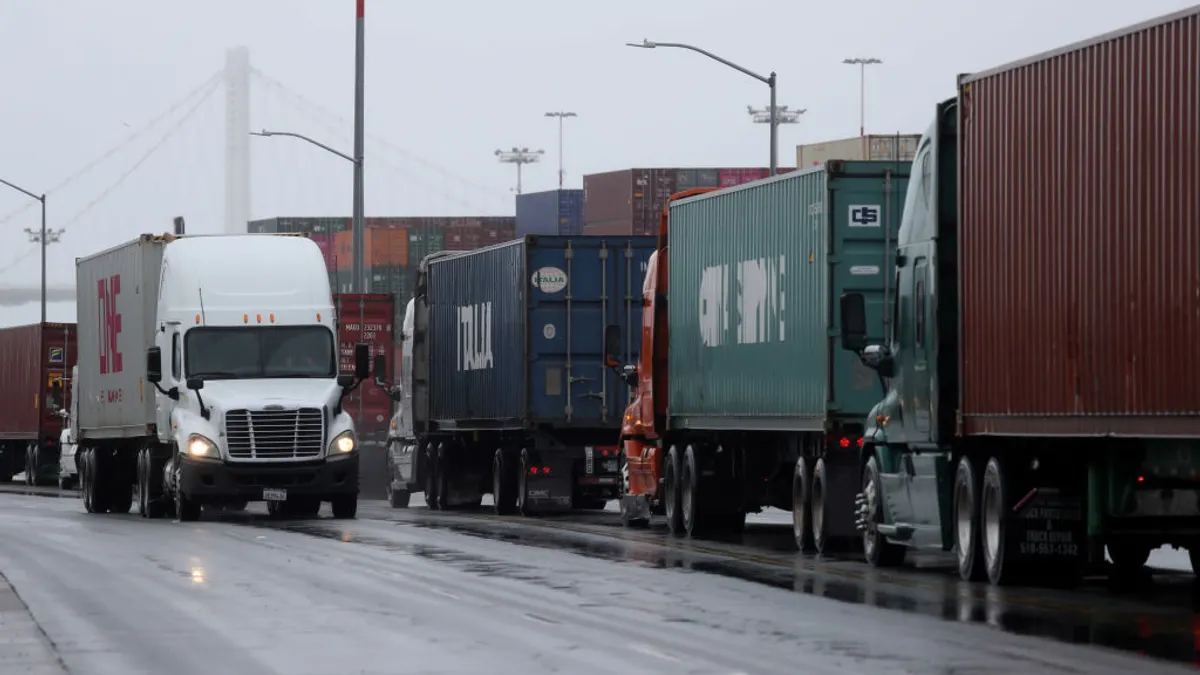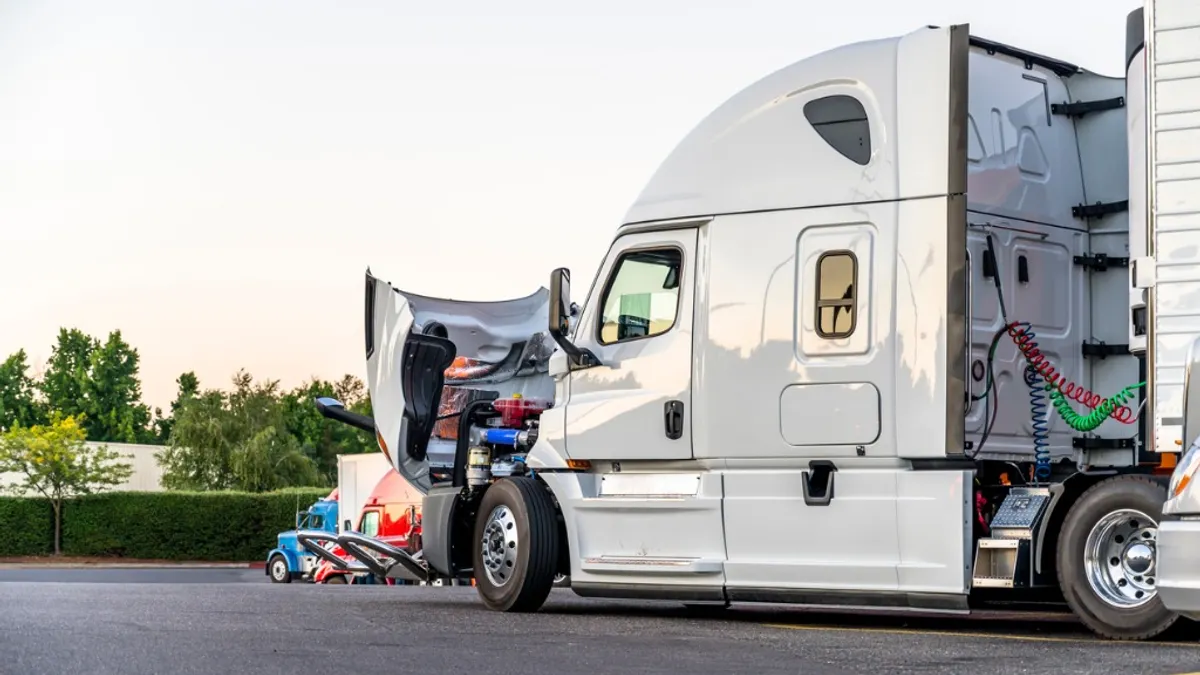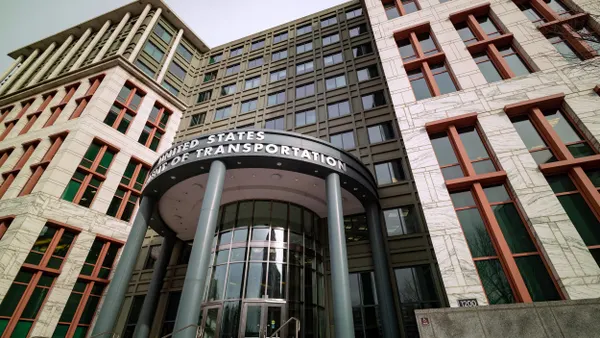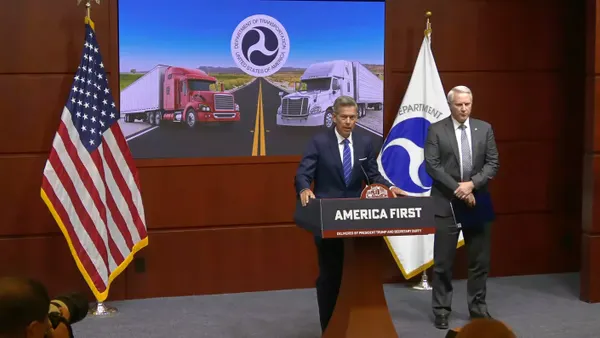Dive Brief:
- A number of trade organizations, including the National Retail Federation and the American Trucking Associations, are raising alarms that truckers, weary and worn down from delivering food and medicine during the COVID-19 crisis, are being blocked, along with car drivers, from some rest stops. The decision by Pennsylvania to close dozens of rest stops on Tuesday caused an immediate backlash, leading to the quick reopening of 13 sites, according to the Philadelphia Inquirer.
- Rest stops are an irreplaceable logistical component, along with commercial truck stops, ATA President Chris Spear wrote to President Donald Trump on Tuesday. The lack of rest stops for drivers could cause logistical headaches for fleets and shippers, not just drivers.
- The COVID-19 outbreak has caused a run on grocery stores for toilet paper, paper towels, cleansers and some food items, leading to a sharper demand for freight shipping. It has also led to shutdowns and closures of some public facilities. The Owner-Operator Independent Drivers Association has been monitoring rest-stop closures, and says the reopening of fewer than half of Pennsylvania's rest areas "shows the state’s leadership still doesn’t understand what needs to be done to ensure the safety of truckers during a national emergency."
Dive Insight:
Truck parking spaces have proven to be a headache for drivers and fleets, as both must meet regulations regarding driver rest while delivering cargo. Plentiful parking spaces would make that easier for fleets. But spaces have never been abundant, and now trade organizations feel states could shrink the supply, if only temporarily, at a time of higher consumer demand and panic buying.
The public rest stops are part of a national inventory of free and privately run spaces. Many truck drivers depend on state rest-stop spaces in case they have to stop for sleep or because they worked their allotted hours per day, or because they have to use the restrooms. The spread of COVID-19 has state officials worried about transmission at public places such as highway rest stops.
The American Transportation Research Institute (ATRI) ranked truck parking the No. 5 biggest area of concern for the trucking industry in its October 2019 report on critical issues.
With e-commerce booming and freight moving faster through the supply chain network, existing parking spaces are not enough for the trucking industry, which has 3.5 million registered Class 7 and Class 8 trucks, according to ATRI and the U.S. Department of Transportation.
Earlier in March, U.S. Reps. Mike Bost, an Illinois Republican, and Angie Craig, a Minnesota Democrat, introduced a bill that would make $755 million available to states to finance projects aimed at increasing the number of parking spaces for commercial truck drivers, according to the ATA.
The bill, H.R. 6104, would assist states in converting retired weigh stations and out-of-use rest stops into truck parking lots.








